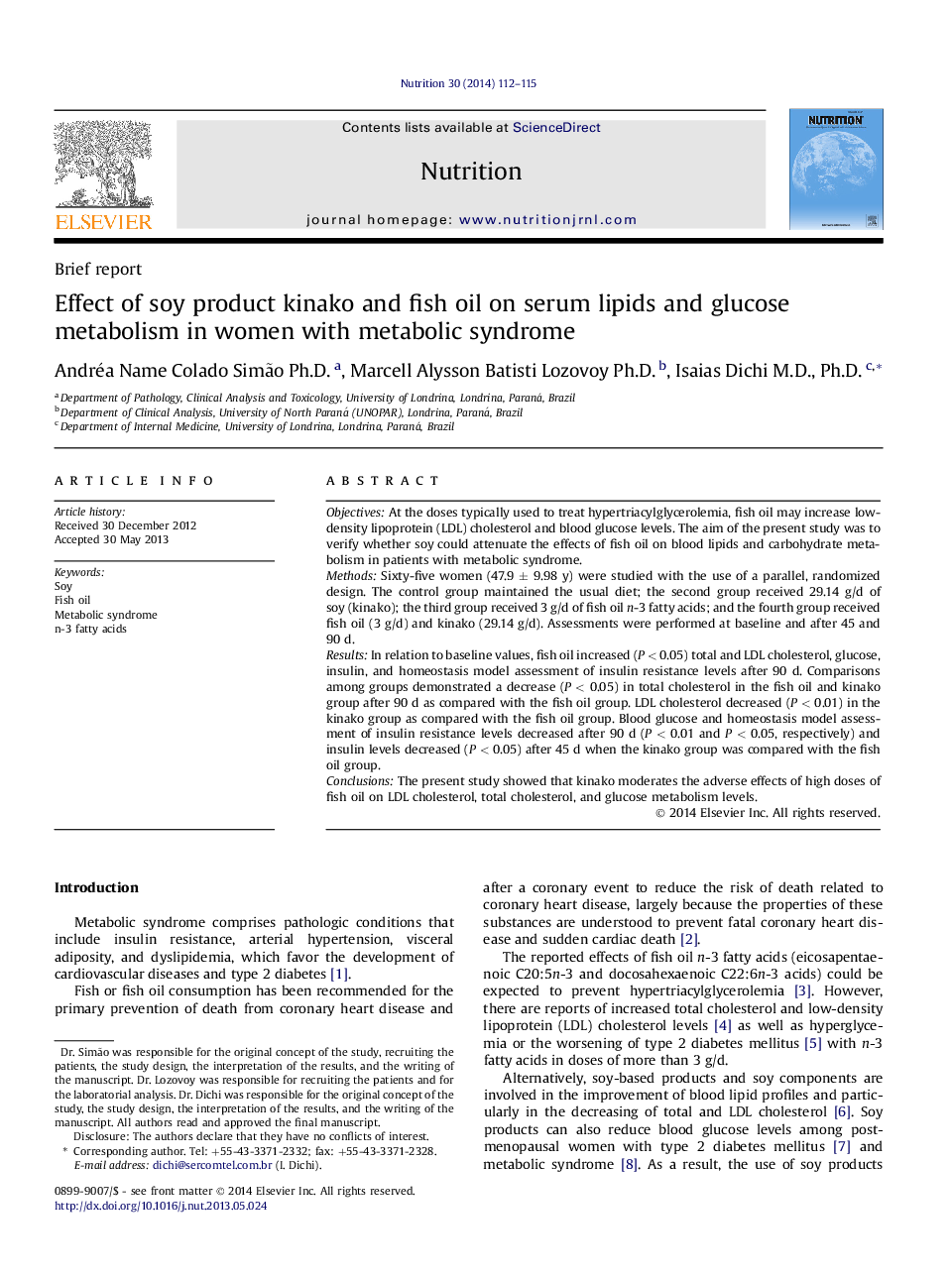| Article ID | Journal | Published Year | Pages | File Type |
|---|---|---|---|---|
| 6089750 | Nutrition | 2014 | 4 Pages |
ObjectivesAt the doses typically used to treat hypertriacylglycerolemia, fish oil may increase low-density lipoprotein (LDL) cholesterol and blood glucose levels. The aim of the present study was to verify whether soy could attenuate the effects of fish oil on blood lipids and carbohydrate metabolism in patients with metabolic syndrome.MethodsSixty-five women (47.9 ± 9.98 y) were studied with the use of a parallel, randomized design. The control group maintained the usual diet; the second group received 29.14 g/d of soy (kinako); the third group received 3 g/d of fish oil n-3 fatty acids; and the fourth group received fish oil (3 g/d) and kinako (29.14 g/d). Assessments were performed at baseline and after 45 and 90 d.ResultsIn relation to baseline values, fish oil increased (P < 0.05) total and LDL cholesterol, glucose, insulin, and homeostasis model assessment of insulin resistance levels after 90 d. Comparisons among groups demonstrated a decrease (P < 0.05) in total cholesterol in the fish oil and kinako group after 90 d as compared with the fish oil group. LDL cholesterol decreased (P < 0.01) in the kinako group as compared with the fish oil group. Blood glucose and homeostasis model assessment of insulin resistance levels decreased after 90 d (P < 0.01 and P < 0.05, respectively) and insulin levels decreased (P < 0.05) after 45 d when the kinako group was compared with the fish oil group.ConclusionsThe present study showed that kinako moderates the adverse effects of high doses of fish oil on LDL cholesterol, total cholesterol, and glucose metabolism levels.
